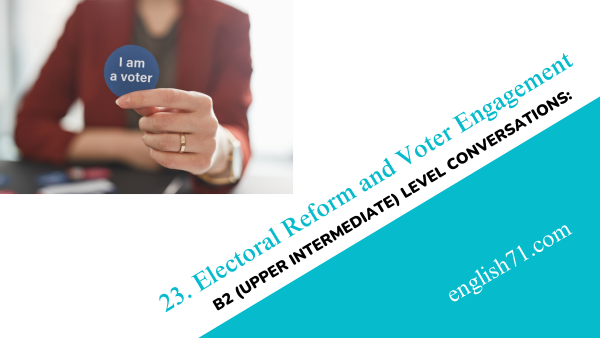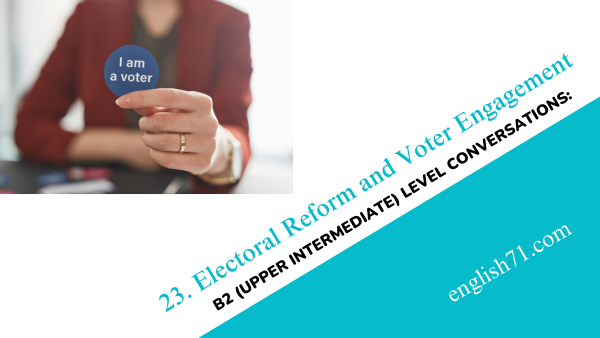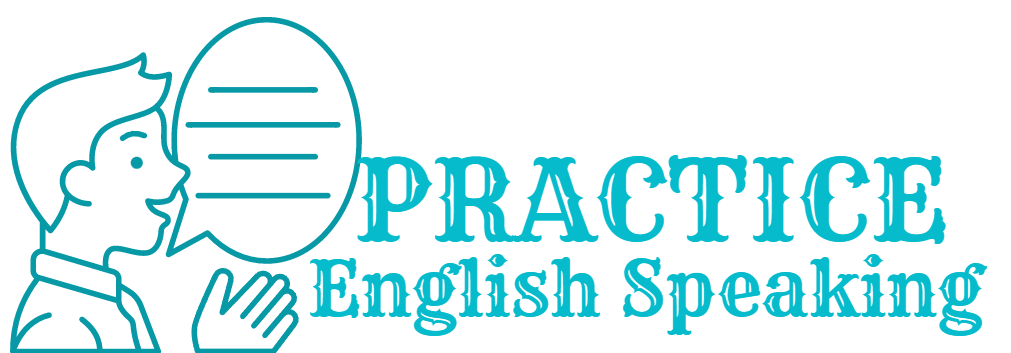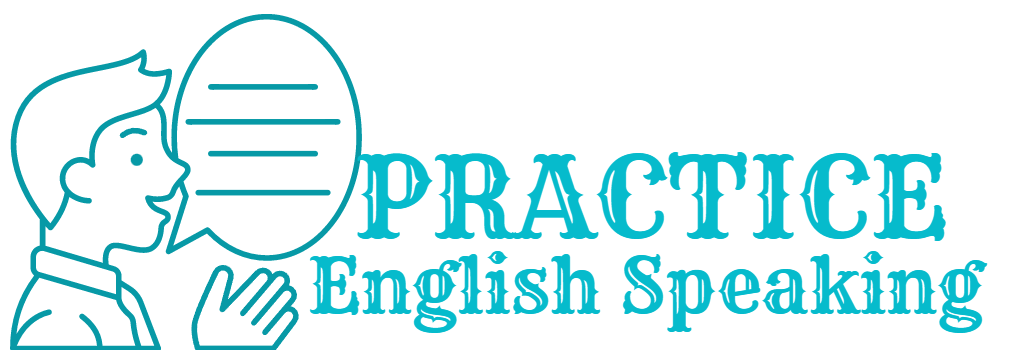B2 (Upper Intermediate) level Conversations: (23)Electoral Reform and Voter Engagement

Rafsan: Hi Ahia! Have you ever thought about electoral reform and how it could impact voter engagement?
Ahia: Absolutely, Rafsan! It’s a critical topic. I believe starting with civic education is essential. What are your thoughts?
Rafsan: Totally agree. We should incorporate civic education into school curriculums. It could help build a foundation for understanding the electoral process and civic responsibilities.
Ahia: That’s a great point. But how about community-level programs? Workshops or seminars could be organized to inform adults and create a more engaged citizenry.
Rafsan: Excellent suggestion! Engaging communities directly can address issues specific to each locality. Now, thinking about electoral systems, what’s your take on their impact?
Ahia: Well, it’s crucial to align them with the cultural and historical context of each society. What works for one might not work for another.
Rafsan: Absolutely. A one-size-fits-all approach doesn’t consider the diversity in governance structures and traditions. But how about the role of technology in this?
Ahia: Technology can certainly modernize voting processes, making them more efficient. However, we need to tread carefully, ensuring robust cybersecurity measures are in place to protect the integrity of elections.
Rafsan: Agreed. Maintaining public trust in the security of the voting system is paramount. And what about voter apathy? It seems like a significant hurdle.
Ahia: It is. Fostering a sense of connection between citizens and their government is vital. Transparency and accountability play a huge role in this. People need to feel heard and represented.
Rafsan: True. Maybe introducing platforms for direct citizen participation in decision-making could bridge that gap. How about initiatives that provide more accessible information on candidates and issues?
Ahia: That’s a good idea. Easy access to information can empower voters to make informed choices. It all boils down to ensuring that the electoral process is inclusive and encourages active participation.
Rafsan: Optimistically, with the right reforms and initiatives, we can overcome these challenges and create a more engaged and informed electorate.
Ahia: Absolutely, Rafsan! It’s a collective effort that involves citizens, policymakers, and technology experts. Here’s hoping for positive changes in our electoral systems!
The conversation concluded on a hopeful note, emphasizing the collaborative efforts needed for meaningful electoral reform and increased voter engagement.

Summary:
Rafsan and Ahia engaged in a comprehensive discussion on electoral reform and voter engagement. They delved into the importance of civic education, proposing strategies like integrating it into school curricula and organizing community programs. The conversation highlighted the impact of various electoral systems, emphasizing the need to tailor them to the cultural and historical context of each society. The duo explored the role of technology in modernizing voting processes, considering both its potential benefits and the critical aspects of cybersecurity and public trust. Addressing the challenge of voter apathy, Rafsan and Ahia stressed the significance of fostering connection, transparency, and accountability to enhance voter engagement. The conversation concluded with an optimistic outlook toward positive changes in electoral systems and increased citizen involvement.

